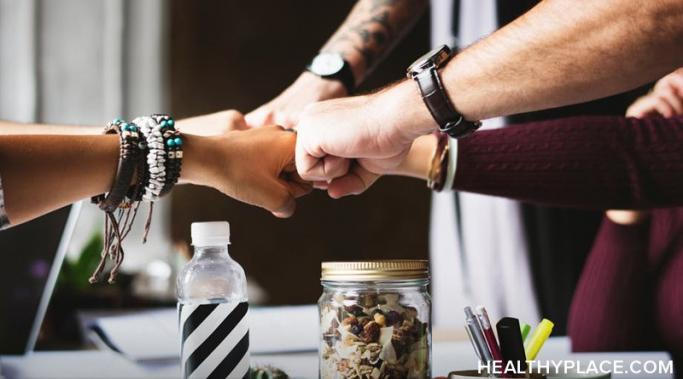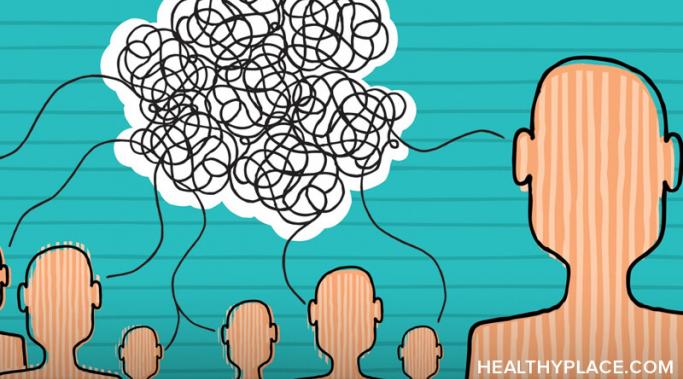Blogs
Verbal abuse cuts deeply, especially if you don't know how to respond to verbal abuse in an effective way. Arguments can be volatile with name-calling and blaming or more subtle like with passive-aggressive remarks or the silent treatment. One thing victims of verbal abuse come to discover is abusers are often irrational and unreasonable. The hostile language does not serve the purpose of getting a message across, it actually has nothing to do with what’s being said, it’s about the abuser's need to gain power and control over the victim. Understanding the argument itself carries no real significance as the abuser makes it apparent that trying to reason or explain is useless. Learning how to respond to verbal abuse can alter the course of the attacks and help a verbal abuse victim regain his power.
Letting go of perfectionism can be difficult, but it's important because perfectionism is a nightmare. It makes it impossible to be satisfied with your accomplishments (or to accomplish anything at all) because it will never be good enough. I used to have a terrible problem with perfectionism. I would have these great ideas but never follow through with them because I couldn’t execute them perfectly. This perfectionist paralysis held me back from a lot of success, especially in the workplace. Now I have come to accept the philosophy, “Done is better than perfect.” You have to let go of the idea that perfection is attainable. However, that is easier said than done, especially for someone with depression.
I am a person with extreme willpower and this helps my mental illness. I know this. It’s obvious. Willpower affects every aspect of my life, of course. But people may think I have no willpower because of my mental illness. This is because people overestimate how much willpower can help a mental illness.
I’ve begun to wonder if current mental health awareness efforts are enough to fight stigma. The word "awareness" in relation to mental illness has a strange effect on me these days. On the one hand, I think awareness is great for helping people better understand the realities of mental illness and the people who live with it. On the other, I feel the word itself feels tired, overused, and almost ineffective as it seems to appear in many places, but somehow manages to lack the impact it could have. I'm not sure if mental health awareness efforts are enough.
Rapid cycling is already hard enough, but when it comes down to a never-ending feeling of aggression, you have to find coping mechanisms to get that anger out. Mental illness episodes don't always have to be difficult, it's just about finding the right coping skills to manage aggression from rapid cycling.
Obsessive-compulsive disorder (OCD) doubt and uncertainty is something I've struggled with since I was a young child. Obsessive-compulsive disorder is often dubbed “the doubting disease” because it makes you second-guess yourself. And uncertainty about life can make my anxiety skyrocket. Obsessive-compulsive disorder doubt and uncertainty about life can be debilitating, but I am finding small ways to cope.
When a loved one passes away, the feeling can be extra traumatic if you're someone who struggles with depression. You feel the negative feelings start creeping back in, and find it hard to go through the motions of everyday life. When a loved one passes away, after a couple days you start to fear getting trapped in the dark hole of depression with no way out.
Receiving a borderline personality disorder (BPD) diagnosis can be both relieving and overwhelming. There was a name for this thing bubbling inside of me? Suddenly, my world made sense when I learned about BPD. Once my initial relief subsided, I was left with the same set of BPD symptoms and fears I’d always had. I thought I would share a few words of wisdom I wish had been passed to me when I first learned about my borderline personality disorder diagnosis.
My name is Becca Hargis, and I am greatly excited to join the Dissociative Living blog. I was first diagnosed in 1992 with dissociative identity disorder (DID), known then as multiple personality disorder; however, the stigma attached to the diagnosis made me run. I knew there was something not quite “right” about me, but I couldn’t accept that it was DID, so I fired my therapist. It took several more years and many more therapists, all of whom diagnosed me with DID, before I finally accepted it.









